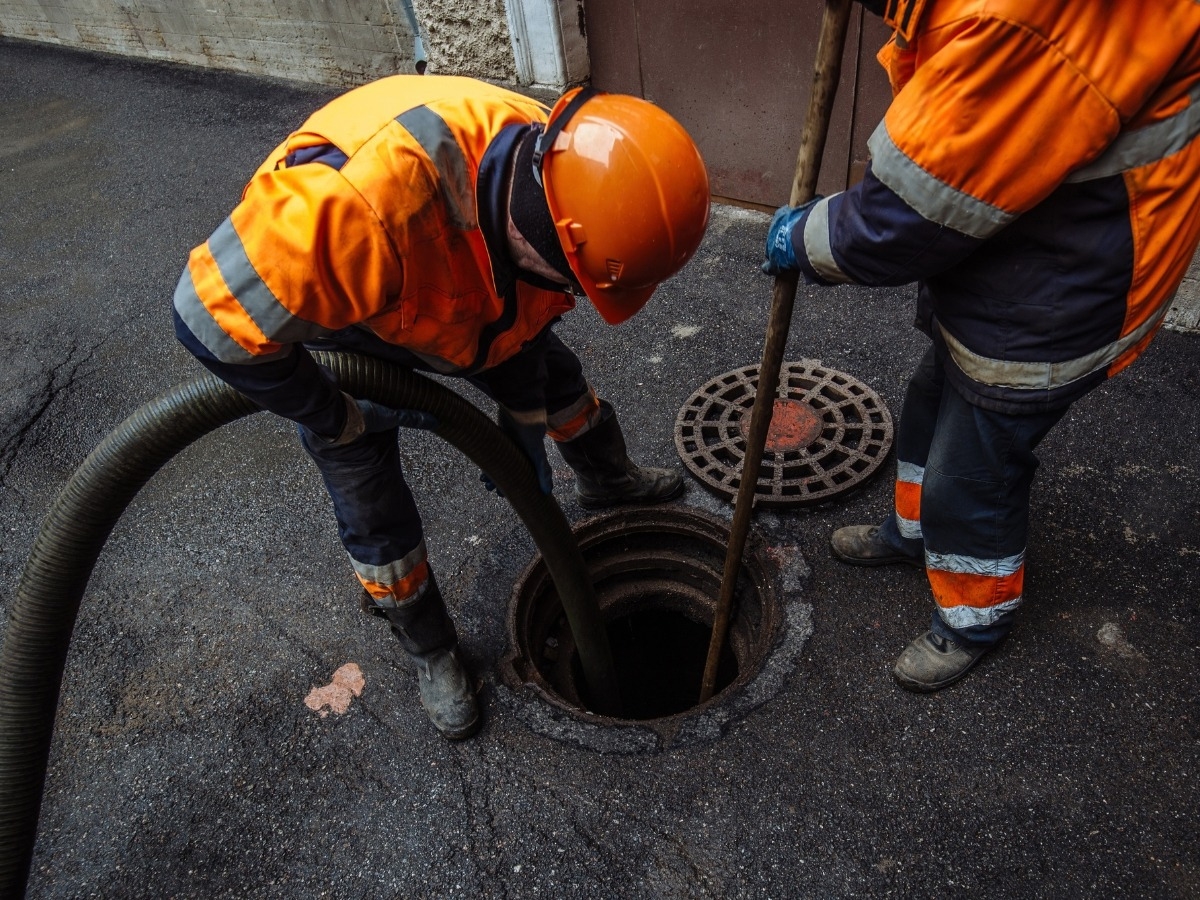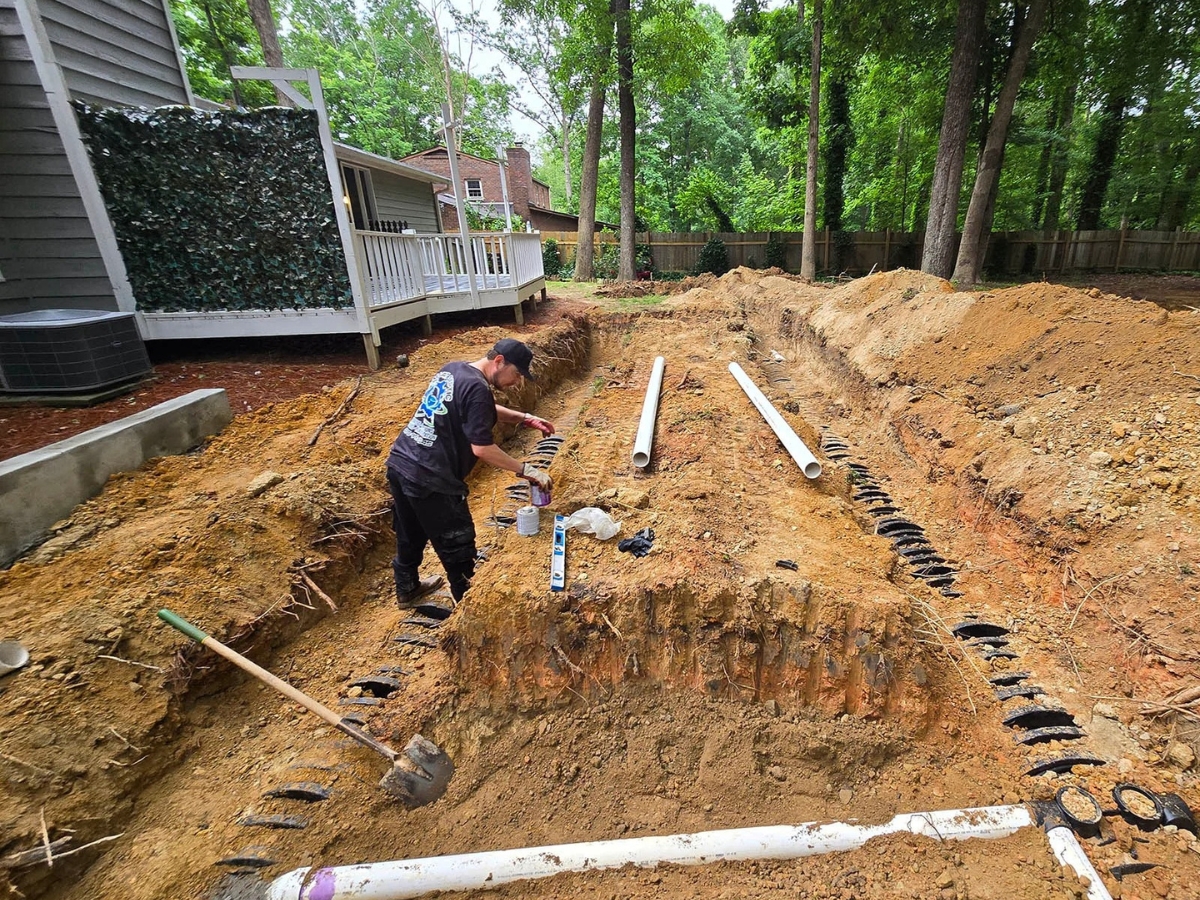For homeowners in remote areas of Marietta, GA, access to a traditional sewer system isn’t always an option—which is where off-grid septic systems come in. Designed to handle wastewater efficiently without municipal connections, these systems are ideal for rural or self-sustaining properties. Whether you’re building a cabin retreat, a full-time residence, or simply exploring sustainable living solutions, an off-grid septic system offers independence and reliability. In this guide, we’ll explore the types of off-grid septic systems available, how they work, and what Marietta homeowners need to consider when planning for wastewater management in remote locations.
How Off-Grid Septic Systems Make Remote Living Possible
Understanding Off-Grid Septic Systems for Marietta Properties
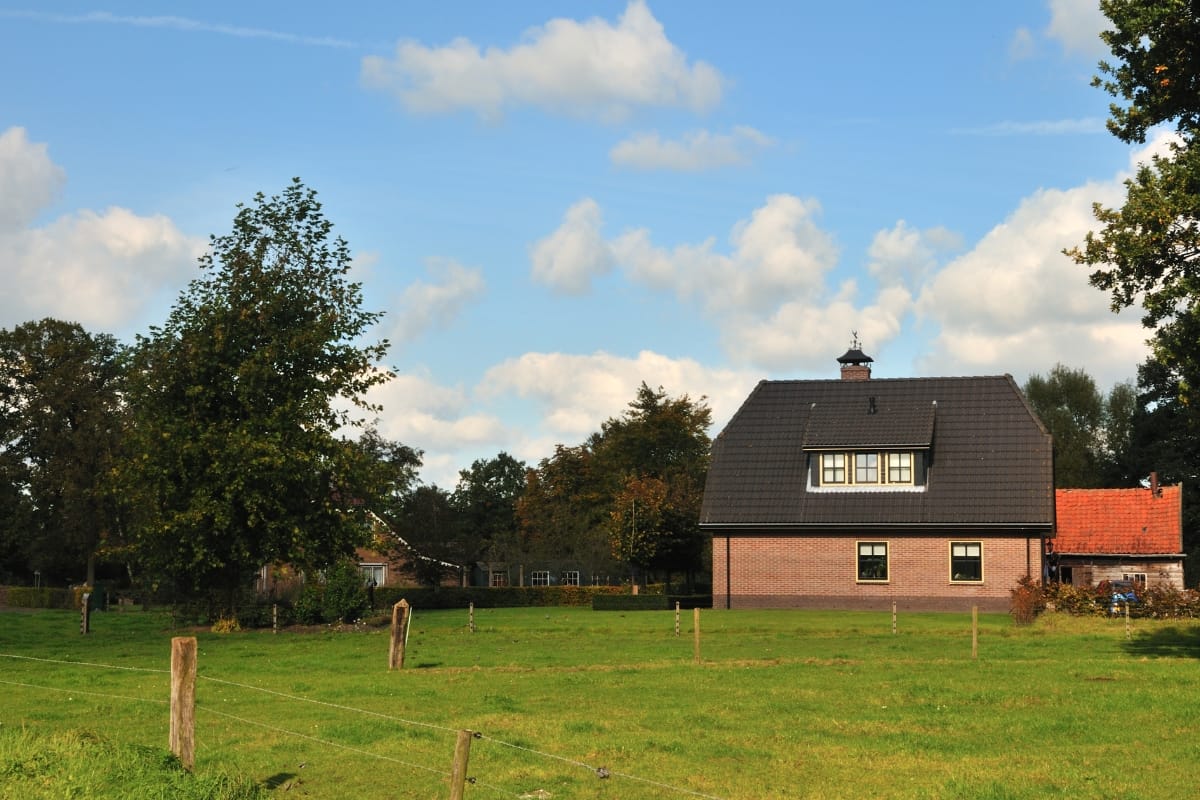
An off-grid septic system is a self-contained wastewater treatment setup that operates independently from municipal sewer lines. It’s commonly used in rural or remote areas and treats both greywater and blackwater on site. The system typically includes a septic tank where solids settle and undergo anaerobic digestion, followed by a drainfield or soil absorption area that further filters the effluent.
Some off-grid systems include additional components, such as aerobic treatment units (ATUs), sand filters, or mound systems, which improve the quality of treated water. These systems often require regular maintenance, including septic tank pumping, to operate efficiently and prevent environmental contamination.
Why Remote Homes in Marietta Require Independent Sewage Solutions
Homes located on the outskirts of Marietta or in more rural areas are often not connected to a public sewer system due to the distance from centralized infrastructure. In these cases, a properly installed and maintained off-grid septic system becomes the only practical option for wastewater management.
These systems can be tailored to the property’s specific needs, taking into account local soil conditions, elevation, and water usage patterns. With routine inspections, periodic pumping, and necessary upgrades, homeowners can manage their wastewater systems effectively and ensure long-term functionality.
Key Differences Between Off-Grid Systems and Municipal Sewer Connections
Unlike municipal systems that rely on centralized treatment plants and extensive pipe networks, off-grid systems treat wastewater on the property where it is generated. This eliminates the need for long-distance transport and reduces the risk of system-wide issues that can occur with centralized sewer lines.
Off-grid systems offer flexibility in terms of treatment technology. For example, homeowners can incorporate composting toilets to reduce water usage, or aerobic units to improve effluent breakdown. Although the initial investment in an off-grid system may be higher, these systems typically have lower long-term operating costs and give property owners more direct control over maintenance and repairs.
The Importance of Soil Assessment for Marietta Off-Grid Septic Suitability
The effectiveness of an off-grid septic system depends heavily on the soil’s ability to absorb and filter wastewater. Before installing a system, a percolation test (or “perc test”) is performed to measure how quickly water drains through the soil. This determines whether the site can support a standard drainfield or requires an alternative design, such as a mound system or an engineered dispersal field.
Poor drainage, high water tables, or unsuitable soil types can lead to system failures if not addressed during installation. Accurate testing helps prevent these problems and ensures the system complies with Georgia state and local regulations.
Environmental Considerations for Wastewater Management on Remote Marietta Land
Proper wastewater treatment is essential not just for the functionality of a home, but for the surrounding environment as well. In areas with streams, ponds, or wells nearby, a malfunctioning septic system can contaminate water sources with harmful bacteria or chemicals. This can harm local wildlife, degrade water quality, and even pose risks to human health.
A well-functioning off-grid system helps minimize environmental impact. Advanced treatment units can reduce nitrogen and phosphorus levels, limit harmful runoff, and even recover energy through biogas production in some cases. These systems also reduce the need for chemical additives and can improve soil health when functioning properly.
Advantages of Sustainable Off-Grid Septic Solutions in Marietta
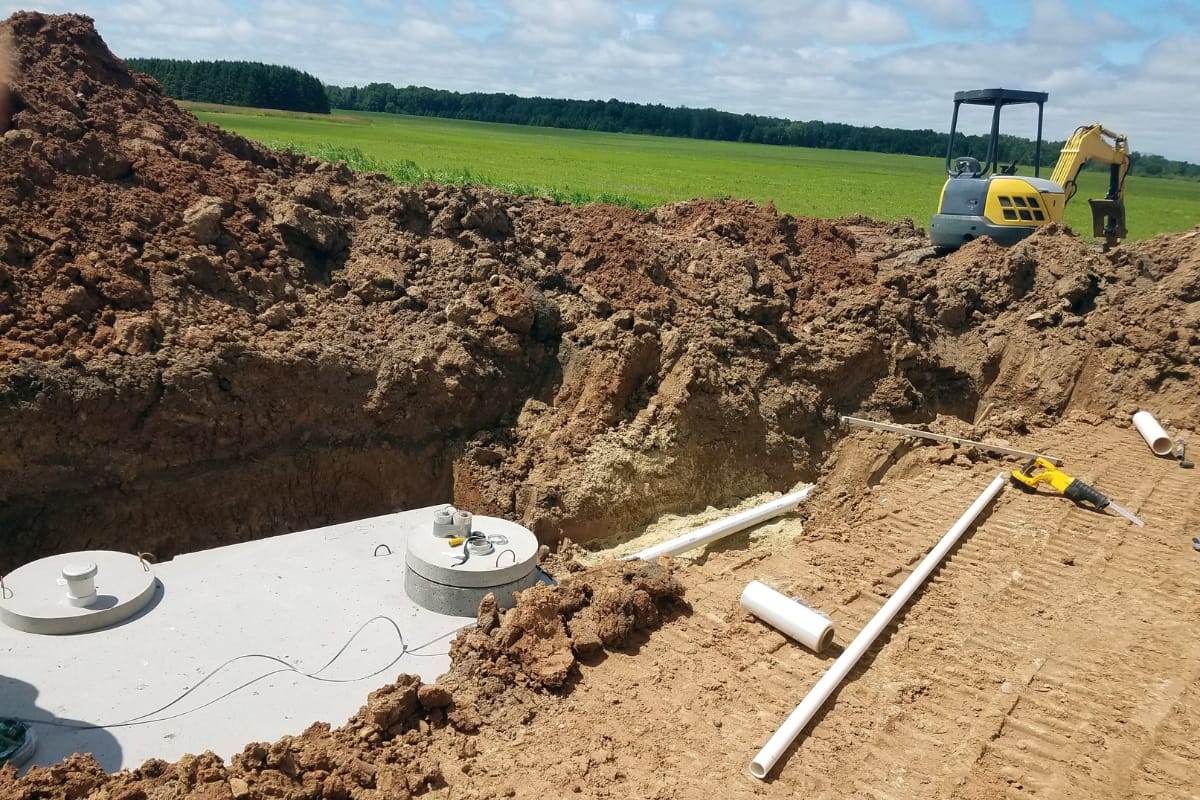
Sustainable off-grid septic systems use natural treatment methods such as aerobic digestion and soil filtration to safely process wastewater. These systems reduce the need for harsh chemicals and are often powered by energy-efficient components like solar pumps. By breaking down waste through biological processes, they help protect groundwater, limit nutrient runoff, and reduce unpleasant odors. This makes them a strong option for property owners concerned with maintaining environmental balance and reducing pollution around their homes.
Long-Term Cost Effectiveness of Sustainable Septic Technologies
While the upfront cost of installing a sustainable septic system can be high, the long-term savings are significant. Homeowners can avoid monthly sewer bills and reduce the frequency of major repairs by keeping up with regular maintenance and inspections. Sustainable systems are typically built with durability in mind, which means fewer replacements and lower lifetime costs. In some cases, state or local incentive programs may also help offset installation expenses, making these systems a financially practical investment in the long run.
Water Conservation Benefits With Advanced Off-Grid Septic Designs
Many off-grid septic systems now include greywater recycling, which allows treated wastewater to be reused for landscaping, gardening, or even toilet flushing. This reduces total water consumption and helps lower household utility bills. Greywater systems are especially valuable in areas like Marietta, where water conservation is an ongoing concern. In addition to conserving resources, these systems ease the load on septic tanks and drain fields, helping extend the life of the entire setup with fewer service interruptions.
Increased Property Autonomy for Remote Marietta Homeowners
One of the biggest advantages of off-grid septic systems is the freedom they offer. Properties located outside city limits often don’t have access to public sewer services. An off-grid solution gives homeowners full control over their wastewater treatment, with the flexibility to choose a system that matches their location, household size, and usage patterns. Regular upkeep, including routine pumping and occasional component upgrades, keeps the system running smoothly without relying on city infrastructure. This level of autonomy is especially helpful in remote or hard-to-reach areas where public services may be limited or inconsistent.
Reduced Carbon Footprint With Natural Wastewater Treatment Methods
Sustainable septic systems operate using processes that consume less energy than centralized wastewater treatment plants. Systems that rely on natural filtration and digestion release fewer emissions and use fewer mechanical components. When combined with renewable energy sources, such as solar-powered pumps or smart monitoring tools, they can significantly reduce the overall carbon footprint of a home. This makes them a good fit for homeowners aiming to live more sustainably or reduce their environmental impact without sacrificing functionality.
A Practical Option for Long-Term Wastewater Management
Off-grid septic systems are not only environmentally friendly but also highly adaptable. They can be designed to suit a wide range of soil conditions, lot sizes, and home layouts. With proper planning and regular care, these systems can operate efficiently for decades. Homeowners who stay on top of regular cleaning and inspection schedules often find that these systems require minimal intervention once installed. This combination of reliability, efficiency, and sustainability makes off-grid options a smart choice for many homeowners in and around Marietta.
Types of Off-Grid Septic Systems Suited for Remote Marietta Residences
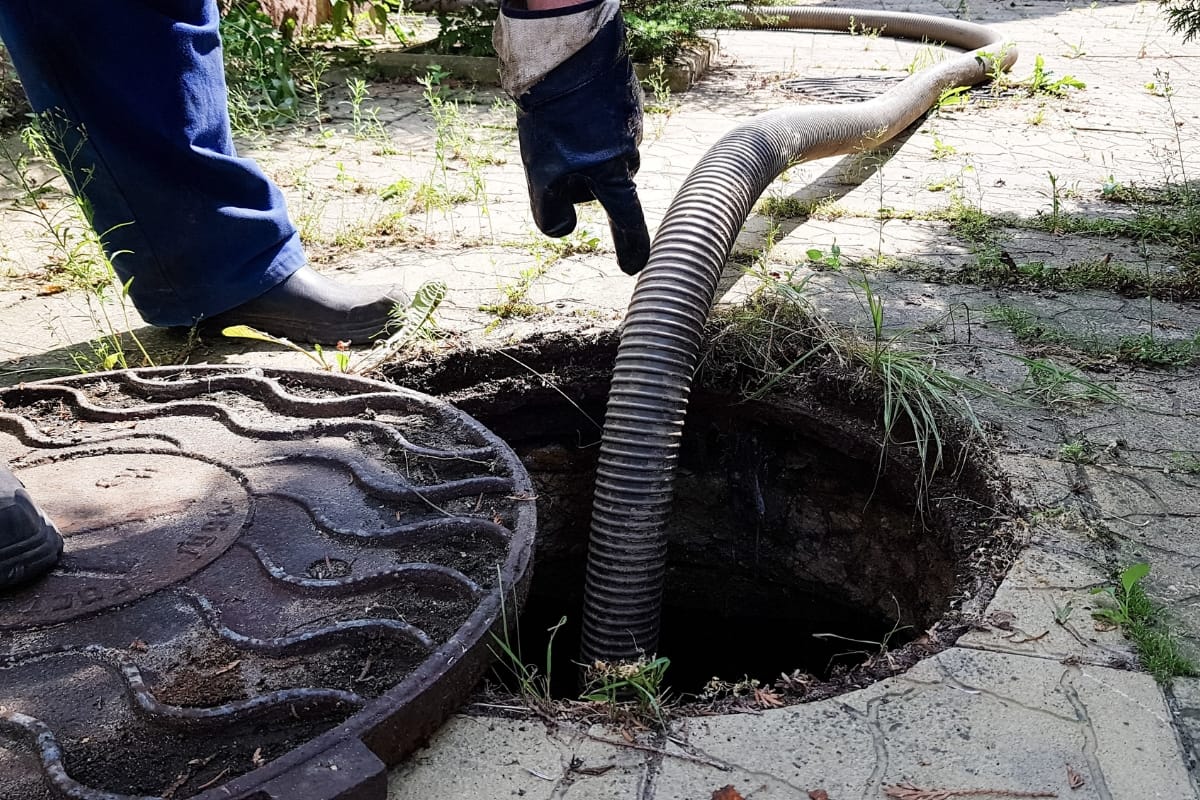
When it comes to managing wastewater on remote properties in Marietta, traditional sewer access is often not available. Off-grid septic systems offer practical solutions tailored to different environmental conditions and property layouts. The type of system you choose depends on factors like soil quality, water table levels, and available space. Below are some of the most effective off-grid septic options for rural or isolated areas in and around Marietta.
Aerobic Treatment Units (ATUs) for Enhanced Wastewater Processing
Aerobic Treatment Units (ATUs) work by adding oxygen to the treatment process, which promotes the growth of aerobic bacteria. These bacteria break down waste more efficiently than their anaerobic counterparts, producing cleaner effluent that is less likely to smell or contaminate nearby soil and water. ATUs are especially useful in areas with poor drainage or high groundwater levels, where standard septic systems may not function properly.
While ATUs offer a high level of treatment, they do require more maintenance than traditional systems. Regular inspections, timely cleaning, and occasional component replacements are necessary to keep the system operating smoothly. The investment in an ATU pays off in the long term, particularly for properties with environmental constraints or strict regulatory requirements.
Drip Irrigation Systems for Effluent Dispersal in Challenging Marietta Terrains
Drip irrigation systems provide a controlled way to distribute treated wastewater into the soil. These systems use a series of small pipes and emitters to gradually release effluent just below the surface, making them ideal for uneven, shallow, or sloped lots. Instead of a large drain field, this setup allows for precise placement of wastewater, reducing the risk of pooling or runoff.
An added benefit of drip systems is their ability to support landscape irrigation. When properly designed, the system can help maintain healthy plant growth while handling wastewater safely. Drip dispersal systems do require filters and periodic maintenance to prevent clogging, but they are a reliable option for properties where conventional drain fields are not practical.
Composting Toilets as a Waterless Off-Grid Sanitation Alternative
Composting toilets offer a completely waterless alternative to standard septic systems. These units collect and break down human waste through a natural decomposition process, transforming it into compost over time. They’re particularly useful for cabins, off-grid homes, or locations where water is limited or plumbing is difficult to install.
Unlike traditional toilets that rely on a septic tank or sewer connection, composting toilets require minimal infrastructure and are relatively low maintenance. They also reduce the volume of waste that needs to be managed, which can lessen the burden on other parts of a property’s waste system. While they may not be suitable for large households, they’re a viable option for smaller dwellings or as part of a hybrid system.
Mound Systems for Properties With High Water Tables or Poor Soil in Marietta
Mound systems are designed for properties where the native soil cannot adequately treat wastewater, either due to slow drainage or a high water table. These systems create a raised dispersal area made of sand, gravel, and soil layers, which helps filter and absorb effluent safely above ground level.
The key to a successful mound system is proper design and installation. These systems require more space and a carefully engineered layout, but they allow homeowners to safely manage wastewater even on challenging sites. Ongoing maintenance is critical to ensure that the mound remains intact and functions properly over time. This includes inspecting the dosing chamber, monitoring water usage, and checking for signs of surface saturation.
Navigating Cobb County's Regulations for Off-Grid Septic Systems
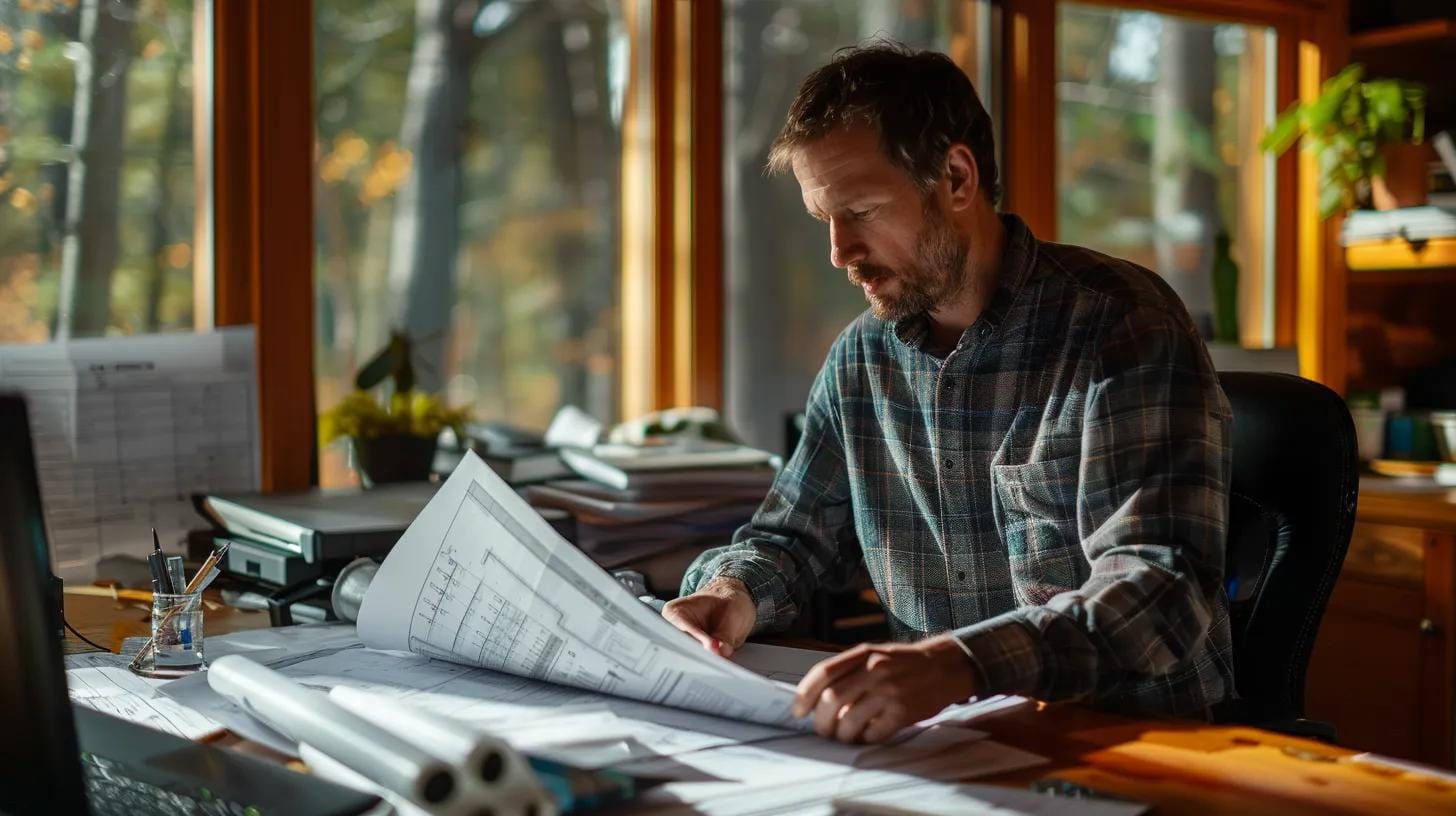
Installing an off-grid septic system in Marietta or elsewhere in Cobb County requires understanding local and state regulations. These rules ensure wastewater is managed safely and sustainably, protecting both homeowners and the surrounding environment.
Obtaining Necessary Permits for Off-Grid Septic Systems in Cobb County
Before any off-grid septic system can be installed in Cobb County, homeowners must obtain the appropriate permits. The process typically begins with a site evaluation and soil test, often referred to as a percolation or “perc” test. This test determines how well the soil can absorb and filter wastewater. The results are then submitted along with system design plans to the Cobb County Health Department for review.
Permits are issued only when plans meet local standards for safety and environmental impact. Designs must account for tank size, drainfield placement, and proper distance from wells, property lines, and structures. Working with licensed contractors who understand local codes can help avoid delays or costly revisions.
Georgia Department of Public Health Rules for on-Site Sewage Management
In Georgia, the Department of Public Health oversees on-site sewage management for residential and commercial properties. Their regulations apply to the design, installation, operation, and maintenance of septic systems. These standards require that all systems be designed based on accurate soil analysis and installed by professionals licensed to work with on-site wastewater systems.
Once installed, systems must be maintained to remain in compliance. This includes regular inspections, periodic pumping, and repairs as needed. Systems that are neglected or fail to meet performance expectations may require replacement or additional treatment measures.
Local Marietta Ordinances Affecting Septic System Placement and Design
Marietta enforces additional rules that can influence septic system placement. Local ordinances may set minimum setbacks from structures, roads, streams, and other sensitive areas. These requirements are intended to prevent contamination of surface and groundwater and to minimize risk to public health.
Designing a compliant system also involves selecting an appropriate location for the drainfield. It must be large enough to handle household wastewater and situated in a spot where soil conditions support proper filtration. These restrictions can impact what type of system a property owner can install and may influence landscaping or future development plans.
Requirements for Licensed Installers of Off-Grid Septic Systems in Georgia
Only qualified professionals are allowed to install septic systems in Georgia. Installers must carry state licensing and be familiar with both Georgia’s health regulations and the unique conditions found in Marietta and surrounding areas. This includes understanding soil types, topography, seasonal water levels, and proper system sizing.
Before hiring an installer, it’s important to verify their license, check references, and review previous work. An experienced contractor can not only handle installation but also advise on the best system for the property, estimate costs, and provide guidance for long-term maintenance.
Inspection Protocols for New Off-Grid Septic Systems in the Marietta Area
Once an off-grid septic system is installed, it must pass a final inspection before it can be used. Local officials will inspect the tank, piping, and dispersal field to ensure everything matches the approved design and functions correctly. They’ll also check that the installation follows health and safety standards.
This inspection is a critical step in preventing early system failures. If issues are identified, corrections must be made before the system can be approved. Some systems may also require follow-up inspections or monitoring for a set period after installation, especially if they include advanced treatment components like aerobic units or alternative dispersal methods.
The Installation Process for Your Marietta Off-Grid Septic System
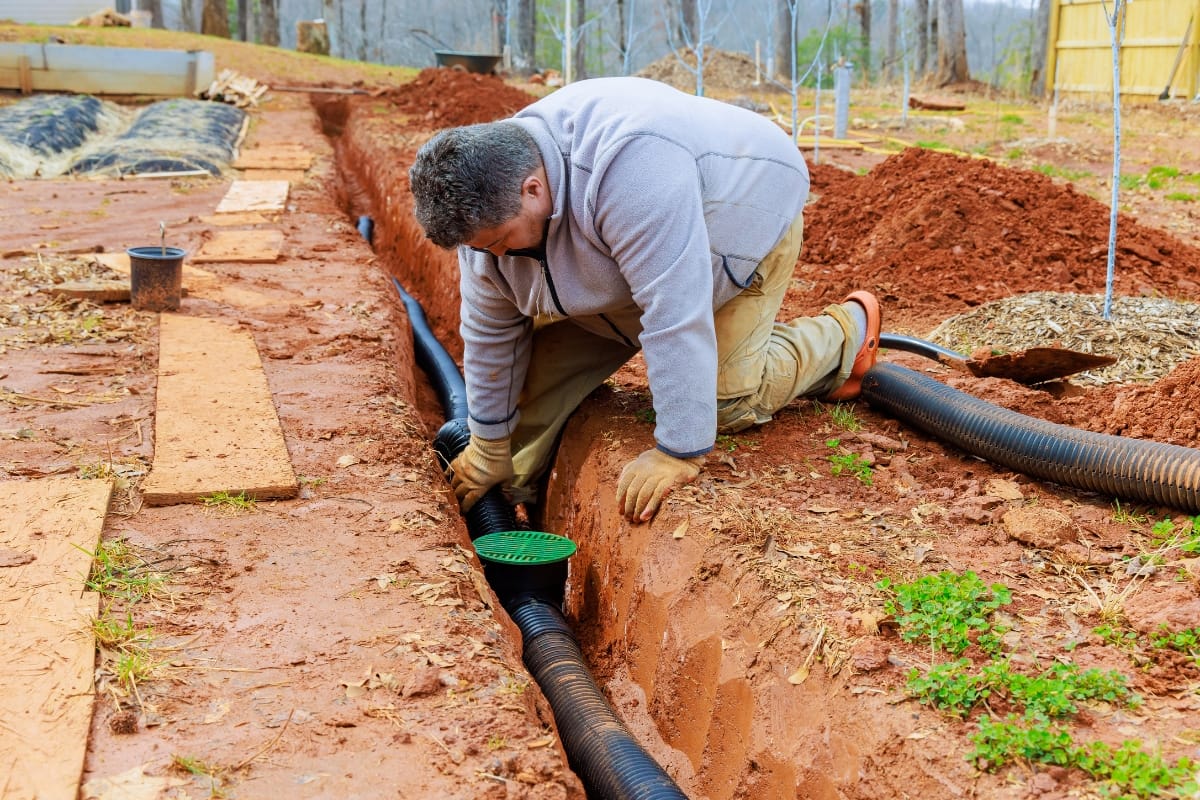
Installing an off-grid septic system in Marietta involves multiple stages, each critical to the long-term functionality and safety of the system. From site evaluation to post-installation testing, the process ensures your wastewater is treated efficiently and in compliance with local and state regulations.
Site Evaluation and Percolation Tests for Marietta Properties
The first step is a detailed evaluation of your property. A licensed inspector conducts a percolation (or “perc”) test to determine how well the soil absorbs water. This test, along with a review of topography, slope, seasonal water tables, and potential environmental risks, helps determine the best location for the septic tank and drainfield.
This early stage is critical. A poorly chosen site can lead to costly issues later, including drainfield failure or contamination of nearby groundwater. Soil type, especially in areas with clay-heavy or rocky ground, also influences system design and placement.
Designing an Off-Grid Septic System Tailored to Your Home’s Needs
Following the site assessment, engineers develop a septic system design tailored to the property. This includes calculating anticipated water usage, specifying tank capacity, and mapping out the layout of piping and drainage areas. Designs must account for the number of occupants in the home, household routines, and any planned water-saving features.
In Marietta, off-grid systems are often necessary for homes located on large or rural lots. Designers ensure the proposed system meets Georgia Department of Public Health regulations and Cobb County permitting requirements. Additional components—such as aerobic treatment units (ATUs) or alternative drainfield technologies—may be included depending on site conditions.
Construction and Installation Process
Once plans are approved, installation begins. Contractors start with excavation and grading to prepare the land for the tank and drainfield. The septic tank is placed in the excavated pit, then connected to the home’s plumbing system. Next, perforated piping is laid out in trenches, often over a gravel base, then covered with geotextile fabric and topsoil.
Proper installation is crucial. Drainage slopes must be consistent, tank access must remain available for future pumping, and ventilation must be planned for odor control. Throughout the process, each step is monitored to ensure the system performs as designed. In some cases, additional inspections are conducted after key phases such as tank placement or pipe installation.
Common Challenges During Off-Grid Septic Installation in Remote Locations
Off-grid installations in rural or wooded areas come with challenges. Sloped terrain, dense soil, or lack of access for heavy equipment can complicate construction. Contractors familiar with Marietta’s geography use specialized tools and techniques to work around these constraints, such as building mound systems for poor soil or using compact machinery in tight spaces.
Delays in permitting or inspection schedules are another concern, especially when coordinating with multiple agencies. Early planning and experienced project management help reduce the impact of these issues and keep the installation on track.
Post-Installation Checks and System Commissioning
After construction, the system undergoes a series of final checks. Water is run through the system to test for flow consistency and ensure all connections are sealed and leak-free. A regulatory inspection is required to confirm compliance with local codes and environmental standards.
Once approved, the homeowner is provided with system documentation, including tank capacity, component locations, and recommended maintenance schedules. This information is essential for future upkeep, such as regular septic tank pumping, filter cleaning, and visual inspections.
Maintaining Your Off-Grid Septic System for Optimal Performance in Remote Settings
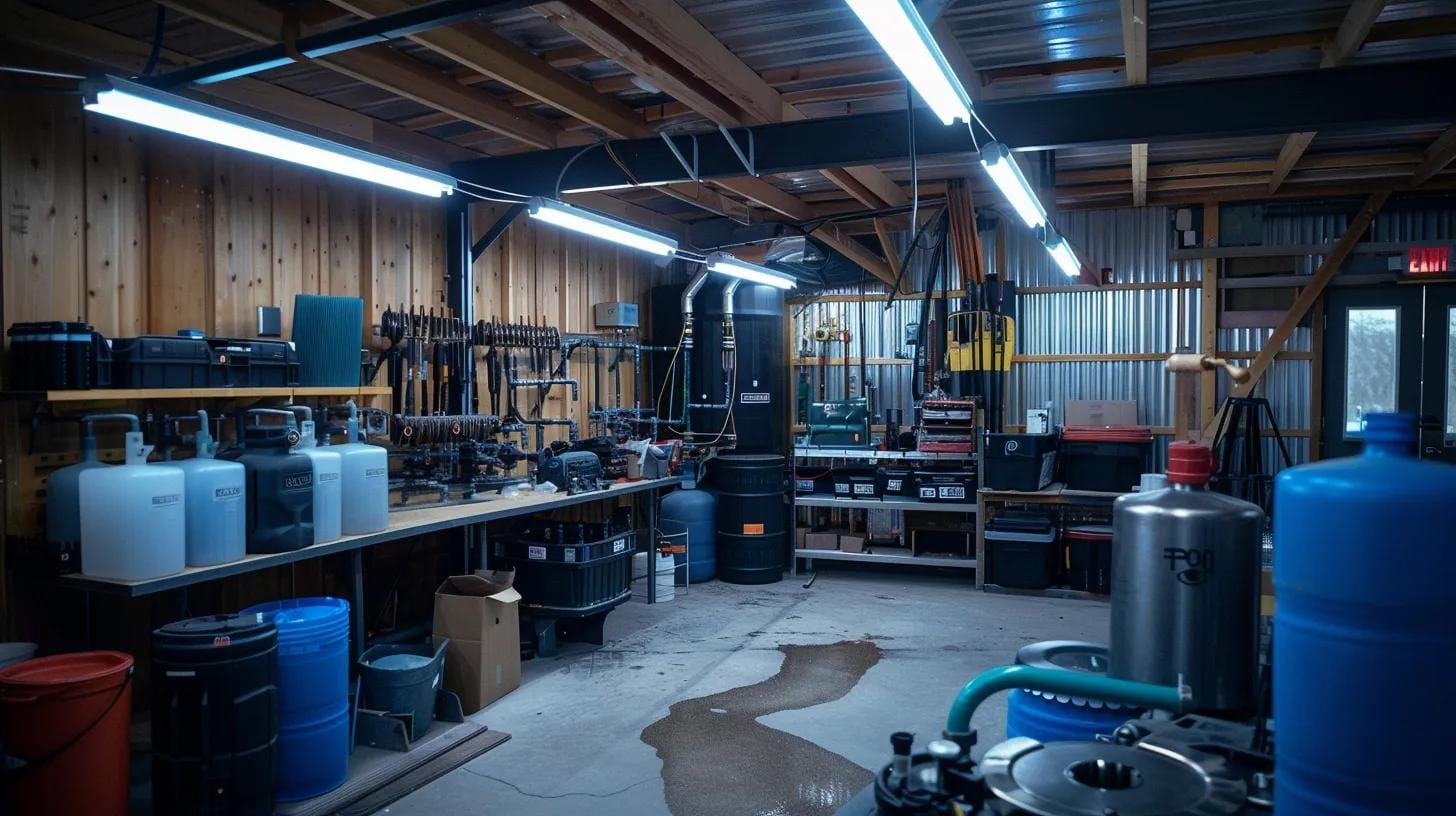
Keeping an off-grid septic system functioning properly requires routine attention. In remote areas like those around Marietta, system maintenance is even more important since access to municipal wastewater services is not available. Regular care helps avoid system failure, environmental damage, and expensive repairs.
Regular Pumping Schedules for Off-Grid Septic Tanks in Marietta
Pumping your septic tank every three to five years is one of the most important steps in maintaining system health. Over time, solid waste settles at the bottom of the tank, forming sludge that can reduce the system’s capacity and efficiency. If not removed, this buildup can lead to backups, odors, and damage to the drainfield.
How often you need to pump depends on the tank size, number of people in the home, and water usage habits. A small household using water conservatively may go several years between pumpings, while larger homes or those with heavy water use may need more frequent service. A qualified technician can help establish a pumping schedule that fits your system’s needs.
Protecting Your Drainfield for Lasting Off-Grid System Functionality
The drainfield is a critical part of your septic system and should be treated with care. Avoid parking cars, placing sheds, or installing patios over this area, as compacted soil prevents wastewater from filtering properly. Tree and shrub roots should also be kept clear since they can clog or damage the drain lines.
Routine visual checks of the drainfield can catch problems early. Look for signs like standing water, foul odors, or grass that looks unusually green or lush in one area. These could indicate that wastewater is surfacing rather than soaking into the ground. Addressing issues early helps prevent full drainfield failure, which is costly and difficult to fix in remote areas.
Identifying Early Warning Signs of Off-Grid Septic System Issues
Knowing what to watch for can prevent a small issue from becoming a serious one. Common red flags include slow-draining sinks and showers, toilets that gurgle or overflow, and unpleasant smells near the tank or drainfield. Indoor plumbing issues combined with signs in the yard often point to a system that needs immediate attention.
Regular inspections by a professional can help catch these problems before they escalate. These inspections usually include checking sludge levels, evaluating flow and drainage, and verifying the condition of components like baffles and filters.
Water Usage Habits That Extend the Life of Your Off-Grid Septic System
Water conservation plays a big role in maintaining a healthy septic system, especially in off-grid settings. Using water-efficient appliances, spacing out laundry loads, and fixing leaks quickly helps keep the system from becoming overloaded. Too much water entering the tank too quickly can force solids into the drainfield, leading to clogs and possible failure.
In addition, avoid flushing anything that doesn’t break down easily, such as wipes, feminine hygiene products, or grease. These materials can clog pipes and interfere with the digestion process inside the tank.
Professional Maintenance Services for Off-Grid Septic Systems Near Marietta
While homeowners can manage some aspects of care, certain services are best left to professionals. Periodic checkups by trained technicians can include pumping, drainfield assessments, and performance evaluations that look at overall system function. These visits help verify that the system meets local codes and operates efficiently year-round.
Some companies offer service plans that include scheduled maintenance, reminders, and documentation. This can be particularly helpful for remote homeowners who want peace of mind and a reliable record of care.
Financial Aspects of Off-Grid Septic Systems in the Marietta Region

Setting up an off-grid septic system is a significant investment, but it can offer long-term benefits for homeowners in remote parts of Marietta. Understanding the costs, maintenance needs, and available financial resources is key to making informed decisions.
Initial Investment Costs for Various Off-Grid Septic System Types
The total upfront cost of installing an off-grid septic system depends on the type of system selected and the property’s specific conditions. Conventional gravity-fed systems are generally less expensive to install, provided the soil drains well and the land is level. In contrast, systems like aerobic treatment units (ATUs), mound systems, and drip irrigation setups cost more due to added components and engineering requirements.
Additional expenses may include soil testing, site evaluations, permitting fees, and contractor labor. Homeowners should also consider the cost of equipment such as tanks, pumps, filters, and distribution systems. Installation on sloped lots or properties with poor soil may require specialized systems that increase the total investment. In these cases, planning ahead and comparing system types is essential to avoid surprise costs later in the process.
Comparing Long-Term Operational Expenses of Different Septic Solutions
Once the system is installed, ongoing costs vary depending on its complexity and maintenance needs. All systems require routine pumping every few years to remove sludge and scum buildup. Simple systems typically have lower service fees, while more advanced systems may include extra maintenance for aerators, filters, and electrical components.
However, higher initial costs don’t always mean more long-term expense. Well-maintained ATUs or drip systems often operate more efficiently and can reduce the risk of costly repairs. These systems may also support better treatment quality and longer drainfield life, resulting in fewer service disruptions. Over 15 to 20 years, these savings can offset the higher cost of installation and maintenance.
Potential Financing Options for Off-Grid Septic Installations in Georgia
Homeowners in Georgia have several options to help finance septic system projects. State and local programs sometimes offer low-interest loans or grants for upgrading or replacing septic systems, particularly if they improve environmental protection or meet new regulatory standards. Some contractors also provide financing plans that allow the total cost to be spread out over time.
Home equity loans and personal loans are other routes homeowners can take to cover installation or repair costs. Before choosing a financial solution, it’s a good idea to compare interest rates, repayment terms, and potential savings from energy-efficient systems. Planning ahead with a financing option can make higher-end systems more accessible while still maintaining long-term value.
How an Off-Grid Septic System Impacts Property Value in Remote Marietta Areas
A properly installed and maintained off-grid septic system can positively affect property value, especially in areas where municipal sewer connections are unavailable. Buyers tend to value systems that are up to code, have service documentation, and show signs of regular maintenance. A reliable wastewater solution increases a property’s appeal and reduces the likelihood of future issues that might deter prospective buyers.
In remote or rural parts of Marietta, a functioning septic system is not just a convenience—it’s a necessity. Homes with proven, sustainable systems are better positioned to attract interest and close sales at higher prices, especially among buyers looking for self-sufficiency and lower utility costs.
Budgeting for Repairs and Upgrades to Your Off-Grid Septic System
Even the most reliable systems require occasional repairs. Common issues include worn components, pump failures, and drainfield problems. Having a maintenance budget in place helps homeowners avoid financial stress when these repairs are needed.
It’s also worth planning for upgrades over time. Older systems may need to be brought up to current standards, and improvements like risers, alarms, or better filtration can enhance performance and lifespan. Setting aside funds for inspections, cleaning, and routine servicing ensures that the system continues to operate efficiently for years to come.
Choosing a Qualified Provider for Off-Grid Septic Systems in Marietta, GA
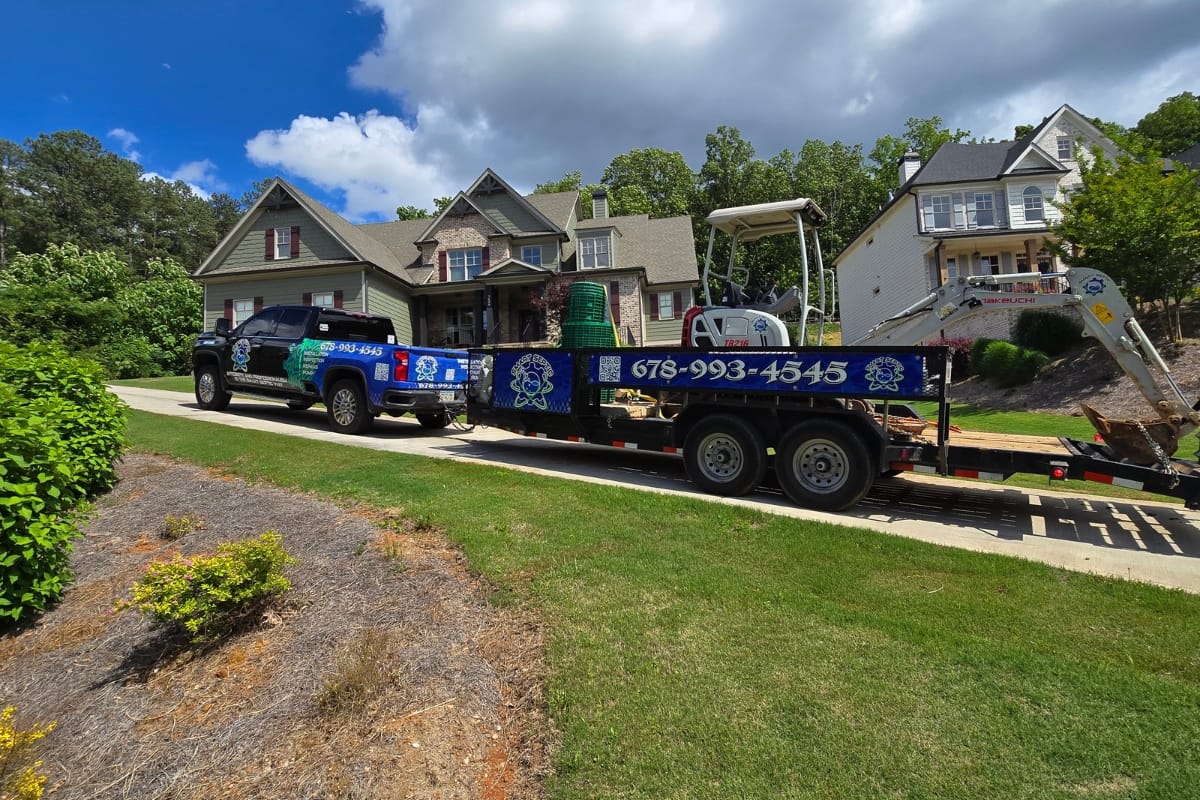
Installing an off-grid septic system is a major investment, and the success of the system depends heavily on the contractor handling the job. In Marietta, where soil conditions and property layouts can vary widely, working with a qualified and experienced provider is critical to ensure the system meets both performance expectations and regulatory requirements.
Verifying Credentials and Experience of Marietta Septic Installers
One of the first steps in choosing a contractor is to verify their credentials. This includes checking for a current Georgia state license for septic system installation, insurance coverage, and any certifications relevant to the type of system being installed. Licensed contractors are more likely to follow local codes and industry standards, which helps avoid complications down the road.
It’s also helpful to ask about the provider’s experience with off-grid systems specifically, not just general septic work. Off-grid designs often require additional technical expertise, especially when dealing with aerobic treatment units, mound systems, or drip dispersal setups.
Questions to Ask Potential Off-Grid Septic System Contractors
Before selecting a contractor, take time to ask a few key questions. These should go beyond price and cover the full scope of their service:
- How many off-grid systems have you installed in the Marietta area?
- What types of systems do you specialize in?
- Can you walk me through the soil assessment and system design process?
- What type of maintenance plans do you recommend after installation?
- Are your systems compliant with Cobb County and Georgia Department of Public Health regulations?
Getting clear answers to these questions will help confirm whether the contractor has both the technical knowledge and the practical experience to manage the project effectively from start to finish.
Reviewing Past Projects and Client Testimonials in the Marietta Area
A reputable contractor should have a portfolio of completed work and references from previous clients. Reviewing these can offer insight into the contractor’s work quality and attention to detail. Photos of past installations, especially for properties with similar conditions to yours, are helpful for understanding what to expect. Reading testimonials or speaking directly with former clients can also highlight how well the contractor communicates, whether they stay on schedule, and how they handle any issues that arise during or after the installation.
Understanding Warranties and Service Agreements for Off-Grid Septic Systems
A strong warranty is a sign that the provider stands behind their work. Look for clear language about what is covered, including system components, workmanship, and any service response time if problems occur. Make sure you understand whether the warranty covers future inspections, maintenance, or repairs, and whether any conditions void the coverage.
Service agreements are equally important, especially for off-grid systems that require periodic pumping, inspections, or filter changes. A good agreement will outline the contractor’s responsibility for system upkeep and your role as the property owner in maintaining long-term functionality.
The Value of Local Expertise in Marietta Off-Grid Septic System Services
Working with a contractor familiar with Marietta’s terrain, soil composition, and permitting process can significantly streamline the project. Local providers are more likely to anticipate challenges such as high water tables, clay-heavy soil, or steep slopes, and recommend systems best suited for those conditions. They’re also well-versed in Cobb County codes and Georgia state regulations, helping you avoid delays in approvals or failed inspections. Beyond installation, a contractor rooted in the community can be counted on for long-term service, including scheduled maintenance or unexpected repairs.
Frequently Asked Questions
Q: What defines an off-grid septic system? A: An off-grid septic system is a self-contained wastewater treatment setup that works without relying on a municipal sewer network. It includes a septic tank that separates and partially treats wastewater, a drainfield where further filtration occurs, and sometimes additional treatment components such as aerobic units or sand filters. These systems are commonly used in rural or remote areas where sewer connections are not available. With proper design and regular maintenance, they can manage both greywater and blackwater efficiently.
Q: How often should an off-grid septic tank be pumped? A: Most off-grid septic tanks need to be pumped every three to five years, though the exact interval depends on the size of your tank, the number of people in the home, and your household’s water usage. Pumping helps remove the sludge and scum that accumulate over time, which prevents blockages, extends the life of the system, and reduces the risk of backup or overflow. Ignoring this essential maintenance task can lead to costly repairs or even full system failure.
Q: What role does soil assessment play in the installation of these systems? A: Soil assessment plays a central role in system design. Before installation, a percolation test is performed to evaluate the soil’s ability to absorb and treat wastewater. This determines whether a conventional system is suitable or if alternatives like mound systems or drip dispersal systems are needed. Soil texture, permeability, and the depth of the water table all influence system selection. A poor soil match can lead to drainage issues, environmental contamination, or health risks.
Q: Are there financing options available for installing an off-grid septic system? A: Yes, several financing options exist to help homeowners manage the upfront costs of installing an off-grid system. These can include state or federal grants, low-interest loans, or contractor-backed payment plans. While the initial investment may seem significant, off-grid systems often result in long-term savings by eliminating municipal sewer fees and offering greater control over maintenance.
Q: How do advanced systems like aerobic treatment units improve wastewater processing? A: ATUs introduce oxygen into the treatment process, which supports aerobic bacteria that break down organic material more quickly and thoroughly than anaerobic systems. This results in cleaner effluent, fewer odors, and improved system performance overall. These units are especially beneficial for properties with limited space, poor soil conditions, or stricter environmental regulations. Although ATUs may require more frequent inspections and occasional component replacement, their efficiency and ability to meet higher treatment standards make them a strong option for many off-grid setups.
Q: What are the benefits of using waterless options like composting toilets? A: Composting toilets are a waterless sanitation solution that breaks down waste using aerobic decomposition. They eliminate the need for flushing and reduce water consumption significantly, making them ideal for areas with limited water resources or where groundwater protection is a priority. Over time, they produce a compost-like material that can be safely disposed of or used in approved landscaping applications, depending on local regulations. These systems are low-maintenance, environmentally friendly, and reduce the overall load on the septic system if one is in use alongside the toilet.
Q: Can off-grid systems handle high water usage? A: Off-grid systems can be designed to accommodate larger households or high-usage properties, but doing so requires careful planning. This might involve selecting a larger septic tank, incorporating greywater recycling, or adding treatment units that can process higher volumes. Spacing out water-intensive tasks like laundry or dishwashing, using efficient appliances, and being mindful of daily water habits also help prevent overloading the system.
Final Thoughts
Off-grid septic systems give Marietta’s remote homeowners the freedom to live sustainably and independently—handling wastewater safely without relying on city infrastructure. From advanced treatment units to gravity-fed designs, these tailored septic solutions ensure your property remains eco-friendly and fully functional year-round. For expert guidance and installation you can count on, turn to Smart Septic Pros. Call us at 678-993-4545 or visit our website to request a service, and let us design the perfect off-grid septic system for your home today.


